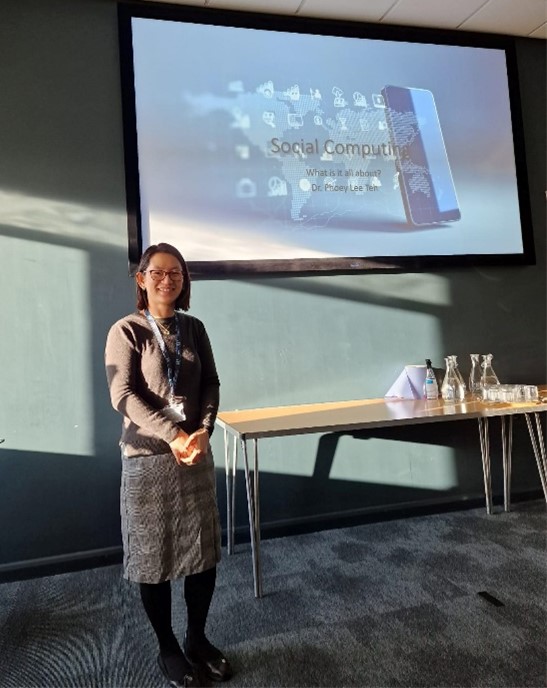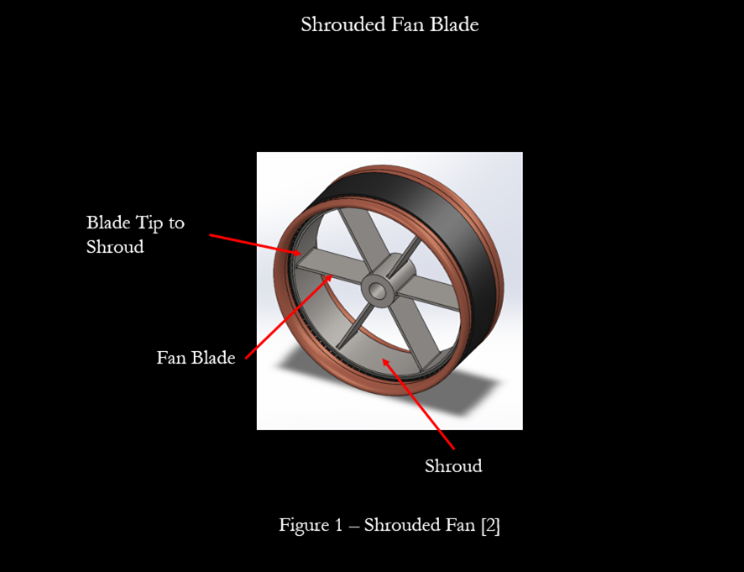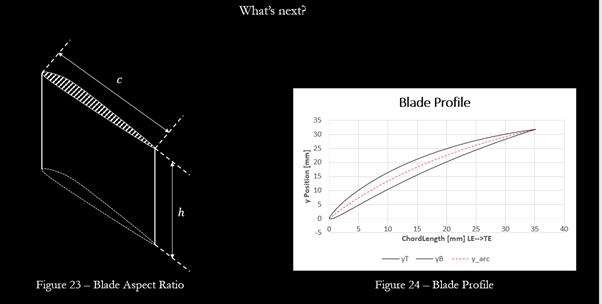FAST Research Seminar Series: Technology and Engineering

November 2023
The third seminar in the FAST Research Series was held at the end of November at the Plas Coch campus, with Dr Rob Bolam chairing proceedings.
First up was Dr Phoey Lee Teh, Senior Lecturer in Computing, on the topic of Social Computing, what is it all about?

Phoey set the scene that social computing is about connections between societal behaviours and computational systems e.g., “creating or recreating social conventions and social contexts through the use of software and technology”. Well known social platforms and apps are plentiful and they are often used as a way in which to communicate, with the software capturing, storing and presenting various forms of written, auditory and visual communication, such as the well-known singing and dancing social app!
So where does the research come in? Well, there is an array of vast and varied research opportunities to try and understand how human behaviour, interactions and societal conventions are influenced and impacted by social platforms and technology.
Phoey’s expansive research analyses data from digital platforms to gain insight and understanding of societal related trends and patterns such as the spread of misinformation during a crisis, #FakeNews, or to monitor public opinion and feelings on important matters such as general elections.
Discussions detailed how every word put out on social platforms, by even casual users, can be ‘grabbed’ and analysed to gain insight and understanding of trends. For example, one of Phoey’s papers explores the motivations and opinions of members of the public who decided to go vegan. Analysis of 25,000+ tweets, obtain by data crawling, found reasons included animal welfare, environmental concerns and healthy lifestyle choices. The research demonstrates that a clustering algorithm is capable of identifying and grouping similar topics and hashtags to understand motives, and this could be applied in both academic and business realms to quickly gather information and spot emerging societal developments.
Social computing research can be of benefit in times of crisis such as during national and international emergencies by providing real time information on the spread of the crisis. Phoey’s session was however also very thought provoking on the potential impact of what we put out on social platforms, which is why social computing research is also being used to educate younger generations on how the use of social platforms can potentially impact employability, promoting the responsible use of social profiles.

Next up was PhD student, Jhon Paul C. Roque, also known as Paulo, who talked to us about the Topological Optimisation of Shrouded Fan Blade. The aim of Paulo’s research is “Maximising the fluid energisation by optimising the shrouded fan blade topology”, which when translated for the non- engineering amongst us is optimising the shape of fan blades to increase the energy being put in the air to achieve faster flight. This is being applied in the very exciting FAST Fan project, which Paulo is part of, for the development of a novel type of ducted fan for high-speed electrically powered flight.
The make-up of a shrouded fan blade was explained, alongside reasons for optimising these aircraft propulsion systems, which includes weight reduction, increased structural robustness, increased operation range, efficiency and power density.
Paulo talked us through the use of Euler’s Turbine Equation and calculating the velocity triangle in order to optimise the blade shape. The limitations of this methodology were also discussed, as it is perfect for axial compressor blade design but less than perfect for use in the optimisation of fan blades.
As part of his research, Paulo has now managed to solve a mathematical impossibility, succeeding where others haven’t managed previously, incredible work! Engineering students in the room certainly seemed to be taking note.
An overview of blade aspect ratio trends since the 1950s was provided, detailing that whilst lighter blades help weight reduction, it also means thinner weaker blades that can lead to increased failure.
A demo of the FAST Fan’s current capabilities was played where 1 to 1 weight to thrust ratio was achieved and the future aims of both the FAST Fan project and Paulo’s PhD research were provided, with very exciting prospects in the optimisation of shrouded fan blade topology ahead.

It was great to see so many students and colleagues in attendance. The next seminar in the series is on 13 December in B21. There’s no need to book, just turn up. Refreshments will be provided. See you there!